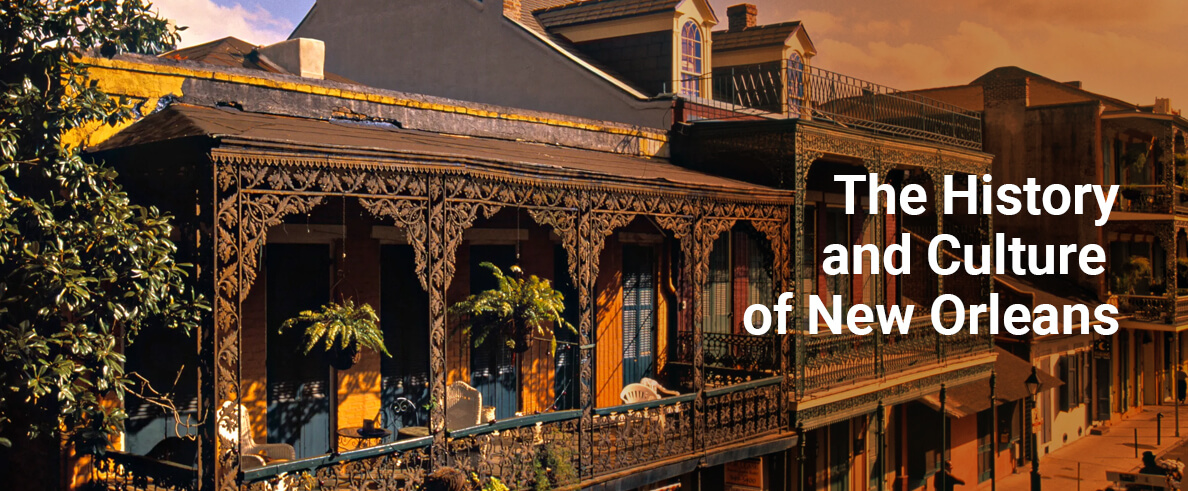
Do You Know About The Cultural Legacy of New Orleans?
As one of North America’s cultural melting pots and unique cities, New Orleans boasts a rich history that spans hundreds of years.
The history of New Orleans dates back to the late 17th century when French explorers built settlements in the area in the 1690s. The settlements eventually grew into camps that took on the name of “Port Bayou St. Jean” and became an important trading point.
In 1718, the city of New Orleans was founded, known by its French settlers as Nouvelle-Orléans and intended to serve as a trading hub along the Mississippi River. The city gave French settlers control of an important strategic area located away from Spanish and English settlers.
Many remnants of the early days of French colonial leadership remain in New Orleans today. An example of these is the city’s grid-like street layout in the French Quarter, which was introduced after the city was damaged in a hurricane in 1722.
New Orleans was ceded to the Spanish in 1763, following the British victory over France and its allies in the Seven Years’ War.
In 1800, Spain returned the city and Louisiana as a whole to France. New Orleans grew at a rapid pace throughout the 19th century. The city was also spared major damage during the Civil War, as it was captured early in the war by the Union without battle, preserving its landmarks.
In the 20th and 21st century, New Orleans developed a unique culture around its interesting and diverse history. Today, the city is famous for its rich culture, interesting cuisine and events, such as the iconic Mardi Gras.
The city’s famous Mardi Gras takes place on the two weeks before and during Shrove Tuesday, with major parades occuring in popular neighborhoods. Balls, local parties and other events are common throughout the Mardi Gras period.
New Orleans is also famous for its music culture. The city’s multicultural and multiracial history have made it a center of African-American, European and Latin music, ranging from jazz in the early and mid-20th century to rock and roll.
This combination of festivities and music culture have made New Orleans one of the top North American cities for nightlife, especially during Mardi Gras.
Finally, New Orleans is renowned for its cuisine. As the capital of Creole cuisine, New Orleans has a variety of iconic local dishes, ranging from hearty dishes like jambalaya and gumbo to a selection of comfort foods such as beignets, etouffee and red beans and rice.
Unfortunately, much of New Orleans’ recent history is associated with the damage the city has encountered during natural disasters. New Orleans’ geographic position makes it a vulnerable city for storms, such as the 2005 Hurricane Katrina and 2017 New Orleans tornado.
Despite these setbacks, New Orleans has rebuilt itself and remains one of the country’s most vibrant, interesting cities. A total of 9.8 million people visited the city in 2016, almost matching the 10 million annual visitors New Orleans received before Katrina.
From delicious food to interesting historical monuments, wonderful music, and a busy, bustling character, New Orleans is a rewarding and unique city with a lot to offer — something it owes to its incredible history and culture.
